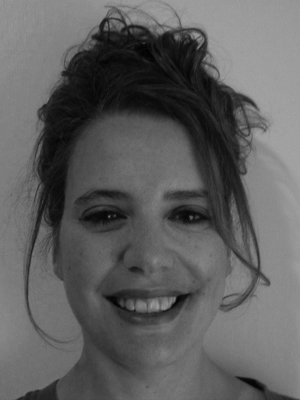ISRF Mid-Career Fellow 2017-18
ISRF Mid-Career Fellow 2017-18

Deana’s early research was comparative in scope; it aimed both to explore the cultural power of colonialism and the differing nature of colonialism in two different types of colonies (namely an ‘exploitation’ colony such as India and settler colonies such as Australia) and their imperial metropole (namely Britain). While her focus was primarily on cultural history – particularly attempts to regulate ‘obscene’ texts and images – she was also interested in how colonial states operated. Such interests drew her to the study of theories of power (particularly Foucault’s concept of governmentality), modernity and globalization. More recently, Deana has developed an interest in violence, particularly in the ways in which colonial regimes – especially in India – employed sovereign power, or the use of force, to enhance and maintain their authority, and the ways this intersected with other forms of power (including both governmentality and biopower). She is particularly interested, moreover, in the impact of such forms of violence on Indian bodies and minds.
Deana will develop these interests further through her ISRF-funded project on state torture in colonial India. This project will bring two disparate literatures together, namely scholarship on violence in colonial India and sociological research on violence, to consider the connections between forms of violence that are overt and perpetrated by identifiable agents – such as torture – and structural forms of violence in which the effects are not always visible and there are no clear perpetrators. It focuses, firstly, on the torturers themselves, who while agents of violence were also victims of it, since they generally came from the lowest social and economic strata of Indian society – from the strata most affected, in other words, by the structural violence of colonialism.
But this project also concentrates on the ways in which torture was systematized as a technology of colonial rule. As in the case of the neo-imperial states responsible for erecting torture regimes as part of the “war on terror”, the colonial Indian state, rather than acknowledging its own constitutive violence and the utility of torture in making it what Achille Mbembe terms a “terror formation” (Mbembe 2003), displaced blame either onto rogue individuals or, more commonly, its victims, whose alleged lack of civility justified the civilizing mission of colonialism. The key innovation of this project is therefore to reassess torture in a colonial context such as India not as an aberrant aspect of a liberal system of rule, but as symptomatic of the broader structural “civilizing” violence of colonialism. It is its elucidation of some of the genealogies of neo-liberal torture regimes and how they operate that make this project of particular contemporary relevance.
How has torture been deployed as a technology for the management of racialized others? How do we understand the operation of torture in a colonial context such as India in which the torturers were themselves colonized and hence subjugated others? This project will bring two disparate literatures together, namely scholarship on violence in colonial India with sociological research on violence, to consider the connections between forms of violence that are overt and perpetrated by identifiable agents – such as torture – and structural forms of violence in which the effects are not always visible and there are no clear perpetrators. It focuses, firstly, on the torturers themselves, who while agents of violence were also victims of it, since they generally came from the lowest social and economic strata of Indian society – from the strata most affected, in other words, by the structural violence of colonialism.
But this project also concentrates on the ways in which torture was systematized as a technology of colonial rule. As in the case of the neo-imperial states responsible for erecting torture regimes as part of the ‘war on terror’, the colonial Indian state, rather than acknowledging its own constitutive violence and the utility of torture in making it what Achille Mbembe terms a ‘terror formation’ (Mbembe 2003), displaced blame either onto rogue individuals or, more commonly, its victims, whose alleged lack of civility justified the civilizing mission of colonialism. The key innovation of this project is therefore to reassess torture in a colonial context such as India not as an aberrant aspect of a liberal system of rule, but as symptomatic of the broader structural ‘civilizing’ violence of colonialism. It is its elucidation of some of the genealogies of neo-liberal torture regimes and how they operate that make this project of particular contemporary relevance.
If you would like to contact any of our Fellows to discuss their ISRF-funded work, please contact Dr Lars Cornelissen (Academic Editor) in the first instance, at [email protected].